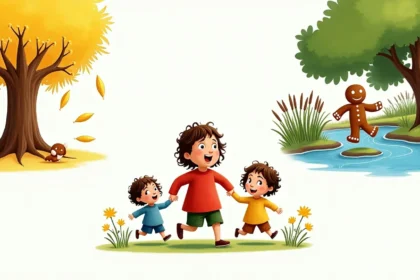Marriage, a sacred bond that promises love and companionship, can sometimes be marred by pain and hurt. When your husband becomes the source of that hurt, the journey ahead seems challenging and uncertain. In this article, we will navigate through the turbulent waters of healing and transformation in a marriage where pain has been a constant companion. Discover how acceptance, communication, forgiveness, self-care and professional support can lead you both towards a brighter future. This is a journey of resilience, growth and rediscovery, as you pen eleven heartfelt letters to a husband who has caused you pain.
Letter 1:
My Dearest,
I am writing this letter with a heavy heart, hoping that the words within can mend the wounds that now separate us. The pain I feel is deep, but it’s matched by the love I’ve held for you. I believe in us, in our capacity to heal and rebuild what was broken. I want you to know that forgiveness is not beyond reach. In time, I hope we can find our way back to each other, stronger and more connected than ever before. The journey won’t be easy, but our love is worth the effort.
Please understand the hurt you’ve caused and let us work together to heal. I long for the day when our hearts can be at peace and our love can shine once more.
With all my love,
[Your Name]
Letter 2:
My Beloved,
In the midst of this pain, I choose to write to you, for my heart still aches for the love we once shared. I believe that love can conquer all, even the darkest of times. Despite the hurt, I hold onto the hope that we can mend what’s broken. These letters are a testament to my faith in us. They are a plea for understanding, growth and forgiveness. Our love story is not over it’s merely facing a challenge. Let’s start on this journey together, hand in hand and rediscover the beauty of our connection. I cherish the memories we’ve created and want to create many more together.
With unwavering love,
[Your Name]
Letter 3:
My Heart,
The pain I feel is indescribable, but it is matched by the depth of my love for you. I write these letters in the hope that they can help us find our way back to each other. I believe that love, when nurtured and cherished, can overcome even the greatest of trials. i want you to understand the anguish I’ve been through, but I also want you to know that I’m willing to forgive and move forward. Let’s not let this pain define us.
Together, we can rebuild our love, making it stronger and more resilient than before. I hope you’ll join me on this journey toward healing and reconciliation.
With all my love and hope,
[Your Name]
Letter 4:
My Soulmate,
The pain of our current situation is unbearable, but my love for you remains steadfast. I’ve chosen to write these letters because I believe that our love story is not over. It’s merely going through a difficult chapter. long for the days when our hearts were intertwined and our love was unshakable. I believe that we can rekindle that flame and emerge from this darkness stronger than ever before. Understanding and forgiveness are the keys to our future together. I hope you’ll consider the path of healing and growth. Together, we can overcome the obstacles that stand in our way.
With enduring love,
[Your Name]
Letter 5:
My One and Only,
As I put pen to paper, my heart aches with the pain of our separation. But it also swells with love, for I still believe in the power of our connection. Love has the ability to heal, even the deepest of wounds. I want you to know that I’m willing to forgive and work towards rebuilding what’s been shattered. Our love story is not over it’s just in need of repair. Let’s embark on this journey together, hand in hand and rekindle the flame that once burned brightly between us. I cherish the moments we’ve shared and long for more in the future.
With love and hope,
[Your Name]
Letter 6:
My Darling,
The hurt I feel is immeasurable, but it pales in comparison to the love I hold for you. I write these letters with the belief that our love can overcome the trials we face. Our story is not over it’s merely evolving. I yearn for the days when our hearts beat as one and I believe that with understanding and forgiveness, we can return to that place of love and happiness. Please consider this letter as an olive branch, an opportunity for us to heal and rebuild our relationship. I am committed to this journey and I hope you’ll join me.
With love and determination,
[Your Name]
Letter 7:
My True Love,
In the midst of this pain, I want you to know that my love for you remains unwavering. I believe that love, when nurtured and cherished, can overcome even the greatest of challenges. Our story is not over it’s simply taking a different course. I long for the days when our hearts were entwined and I hold onto the hope that we can rekindle that connection. Forgiveness and understanding are the keys to our future together. Please consider these letters as an invitation to heal and rebuild what’s been broken. I am ready to take this journey with you, no matter how difficult it may be.
With love and faith,
[Your Name]
Letter 8:
My Precious,
The pain I feel is profound, but it is matched by the depth of my love for you. I write these letters because I believe in our capacity to heal and grow together. Our love story is not over it’s merely facing a challenge. I want you to understand the hurt I’ve experienced, but I also want you to know that I’m willing to forgive and work towards a brighter future. Love can conquer even the darkest of times. Let’s embark on this journey together, hand in hand and rediscover the beauty of our connection. I cherish the moments we’ve shared and want to create more together.
With unwavering love,
[Your Name]
Letter 9:
My Sunshine,
In the midst of this darkness, I want you to know that my love for you remains as bright as ever. These letters are a testament to my faith in us and in the power of love to heal. Our story is not over it’s just going through a difficult chapter. I long for the days when our hearts were filled with happiness and trust. I believe that we can rebuild what’s been broken, but it will require understanding and forgiveness. Please consider this letter as an invitation to start anew, to heal the wounds that separate us. I am committed to this journey and I hope you’ll join me.
With love and hope,
[Your Name]
Letter 10:
My Anchor,
The pain I feel is immense, but it’s eclipsed by the love I hold for you. I write these letters because I believe in our ability to overcome the challenges we face. Our love story is not over it’s merely evolving. I yearn for the days when our hearts were intertwined and I believe that with patience and understanding, we can return to that place of love and happiness. Consider this letter as a plea for reconciliation, for us to heal and rebuild our relationship. I am willing to take this journey with you, no matter how arduous it may be.
With love and determination,
[Your Name]
Letter 11:
My Everything,
In your arms, I found solace and joy. The pain we’re experiencing is a testament to the depth of our connection. Our story is not over it’s just facing a test of strength. I write these letters with the belief that love, when nurtured and cherished, can conquer all obstacles. I long for the day when our hearts can be at peace again, knowing we’ve conquered the darkness. Consider this letter as an invitation to rebuild our love, to make it stronger and more resilient. I am committed to this journey and I hope you’ll join me.
With all my love,
[Your Name]
Understanding Hurt in a Marriage

Hurt within the confines of a marriage can take on many forms, each with it’s own weight and impact. It often starts subtly, like a crack in the foundation that, if left unaddressed, can grow into a significant chasm.
Emotional Hurt: This is the most common form of hurt in a marriage. It includes feelings of neglect, rejection or constant criticism. Emotional hurt can erode your self-esteem and create a sense of isolation.
Verbal Hurt: Hurtful words, insults or derogatory comments can leave deep scars. Verbal hurt can damage not only your emotional well-being but also the core of your relationship.
Physical Hurt: In rare and extreme cases, physical abuse can occur. Physical hurt is a dangerous manifestation of the underlying issues in a marriage.
Infidelity: When trust is betrayed through infidelity, it can cause profound emotional pain. The sense of betrayal and broken trust can be overwhelming.
Financial Strain: Money-related conflicts can lead to hurt, especially when financial decisions are not made together or there is a lack of transparency.
Intimacy Issues: A lack of physical or emotional intimacy can also cause hurt. Feeling disconnected from your partner can be emotionally painful.
The Healing Process

Healing from the wounds of a troubled marriage is a journey filled with challenges, self-discovery and growth. Just as a tree, once wounded, can recover and flourish, so too can a marriage find renewal and strength. Here’s a closer look at the key steps in the healing process.
Acceptance as the Foundation: The first crucial step is acknowledging that pain and hurt exist within your marriage. Denial can only prolong the healing process. Embrace the truth, no matter how painful it may be.
Recognizing Your Emotions: Understand that it’s perfectly normal to experience a range of emotions such as anger, sadness, confusion and even guilt. These emotions are part of the healing journey and it’s essential to validate them.
Seeking Support: You don’t have to navigate this journey alone. Lean on friends, family or a therapist who can provide a safe space for you to express your feelings and offer guidance.
Self-Care and Self-Love: Prioritize your well-being by rediscovering yourself. Reconnect with your interests and passions that may have been set aside. Taking care of your physical and mental health is essential for resilience.
Ⅱ
Communication is Key: Initiate open, honest and empathetic conversations with your spouse. Share your feelings and concerns while actively listening to their perspective. Effective communication is the bridge to understanding.
Forgiveness: A Path to Healing: Understand that forgiveness is not about forgetting or condoning hurtful actions. Instead, it’s a means of freeing yourself from the weight of resentment and finding emotional healing.
Setting Boundaries: Establish clear boundaries that protect your emotional well-being. Boundaries communicate your needs and expectations, fostering a healthier environment within the marriage.
Rebuilding Trust: Rebuilding trust is a gradual process that requires time and consistent actions aligning with trustworthiness. Both partners must actively participate in rebuilding this essential foundation.
Seeking Professional Help: Don’t hesitate to consider marriage counseling or individual therapy. Professional assistance can provide invaluable insights and strategies to facilitate healing and personal growth.
Empowerment and Growth: Use this period of healing as an opportunity for personal empowerment. Embrace change as a positive force and set new goals for yourself and your marriage.
Moving Forward: Embrace the healing journey as a new chapter in your marriage. Learn from past experiences and focus on creating a brighter and more fulfilling future together. Cultivate positivity and cherish the aspects of your relationship that bring joy.
Self Care & Self Love

In the system of healing a afflicted marriage, one factor that frequently gets overlooked however is paramount to achievement is self-care and self-love. These two interconnected principles are not just buzzwords they’re the foundations upon which emotional restoration, private boom and ultimately, a more healthy dating are built.
Rediscovering Oneself
Self-care starts offevolved with a conscious effort to reconnect with your proper self. In the tumultuous sea of a bothered marriage, it is smooth to lose sight of your very own interests, goals and passions. Rediscovering these aspects of your self isn’t always egocentric it’s a necessary step closer to non-public fulfillment and a more potent partnership.
Consider revisiting interests or activities that once delivered you joy. Engaging in these activities can reignite the spark inside you and provide a experience of reason past the confines of your marriage. By making an investment time in your passions, you reaffirm your identity and benefit a renewed sense of self-worth.
Prioritizing Well-Being
Self-care extends past pursuing hobbies it encompasses prioritizing your physical and mental nicely-being. A healthful you is higher ready to navigate the demanding situations of mending a troubled relationship. This involves adopting a balanced way of life that consists of ordinary workout, a balanced diet and enough sleep.
Mental nicely-being is equally crucial. Practice mindfulness and rest strategies to manage strain and tension. Consider looking for therapy or counseling, in my view or as a pair, to address any emotional wounds and study healthier coping mechanisms. Self-care is an ongoing commitment to nurturing your emotional resilience.
The Connection Between Self-Care and Self-Love
Self-love is an intrinsic a part of self-care. It involves spotting your really worth and treating yourself with the identical kindness, compassion and admire which you could offer to a expensive buddy. In the context of a stricken marriage, self-love way acknowledging which you deserve happiness and a fulfilling relationship.
When you exercise self-love, you place limitations that guard your emotional nicely-being. You not tolerate behaviors that hurt or decrease your experience of self. Instead, you assertively communicate your needs and expectations for your accomplice, fostering a more fit dynamic within the marriage.
Moreover, self-love encourages forgiveness, not just of your accomplice however additionally of yourself. It’s approximately letting cross of self-blame and guilt and recognizing that recuperation is a adventure in which missteps are part of the procedure.
The Impact on Your Marriage
Embracing self-care and self-love can profoundly effect your afflicted marriage. By nurturing your very own nicely-being and self-worth, you carry a more healthy, more resilient version of yourself to the connection. This can facilitate greater powerful communique, empathy and understanding between you and your partner. Furthermore, when each partners prioritize self-care and self-love, it creates an surroundings wherein private increase and emotional recovery are advocated. Each person’s adventure towards self-improvement contributes to the overall health and energy of the wedding.
In essence, self-care and self-love are not egocentric acts they’re acts of self-preservation and empowerment. They are the crucial building blocks for recovery a troubled marriage and paving the way closer to a brighter, extra satisfying future collectively.
Communication is Key in Healing a Troubled Marriage

Communication, often touted as the cornerstone of any successful relationship, takes on an even more critical role when it comes to healing a troubled marriage. It is the bridge that connects two individuals, fostering understanding, empathy and ultimately, resolution. In the context of a strained relationship, effective communication can be the catalyst for transformation and renewal.
Open and Honest Conversations
Effective communication begins with open and honest conversations. In a troubled marriage, it’s common for both partners to hold back, tiptoe around sensitive issues or even resort to silence. However, withholding thoughts and emotions only perpetuates misunderstandings and exacerbates existing problems.
To break this cycle, both individuals must create a safe space where they can express their feelings, concerns and desires without fear of judgment or retribution. Transparency becomes the foundation upon which trust can be rebuilt.
Active Listening
Communication isn’t just about speaking it’s also about active listening. To truly understand each other, both partners must cultivate the skill of listening attentively, without interruption or preconceived judgments. This means not only hearing the words spoken but also trying to grasp the emotions, needs and underlying motivations behind those words. Active listening fosters empathy and allows each person to see the situation from the other’s perspective. It often reveals that beneath the surface conflicts, there are shared desires for love, connection and a harmonious relationship.
Breaking Down Barriers
In troubled marriages, communication may be hindered by emotional barriers, such as anger, resentment or hurt. It’s essential to address these barriers and work towards breaking them down. This may involve seeking professional help to facilitate productive discussions or learning healthy conflict resolution strategies.
Moreover, effective communication requires a commitment to managing emotions constructively. Instead of reacting defensively or with anger, strive to respond with empathy and patience. Remember that healing is a gradual process and setbacks may occur.
Communication as a Path to Resolution
When communication is nurtured and prioritized in a troubled marriage, it becomes a powerful tool for resolution. Through open dialogue and active listening, couples can uncover the root causes of their issues, allowing for targeted solutions. It’s often surprising how clarity and understanding can lead to compromises that were previously elusive. Furthermore, effective communication helps prevent misunderstandings and escalations of conflicts. Instead of letting minor disagreements snowball into major issues, couples can address concerns promptly, reducing the emotional toll on the relationship.
Communication as a Continuous Process
It involves regular check-ins and conversations to ensure that both partners remain attuned to each other’s feelings and needs. By consistently engaging in dialogue, couples can prevent misunderstandings from festering into larger issues. This ongoing communication allows for the adaptation of strategies as the relationship evolves, ensuring that solutions remain relevant and effective. Moreover, it nurtures a sense of emotional closeness and mutual support, which can be vital in sustaining a healthy, thriving marriage over the long term. In essence, the process of healing and maintaining a troubled marriage is an ever-evolving journey of open, empathetic and continuous communication.
Forgiveness

Forgiveness, often regarded as one of the most challenging yet transformative aspects of mending a troubled marriage, plays a pivotal role in the journey towards healing and renewal. It serves as a bridge between the past and the possibility of a brighter future, offering liberation from the weight of resentment and pain.
What Forgiveness Is Not
Before delving into the concept of forgiveness, it’s essential to understand what it is not. Forgiveness does not imply condoning hurtful actions or dismissing their significance. It is not a form of exoneration for the wrongdoer or an excuse for their behavior. It doesn’t mean that you forget the pain or pretend it never happened.
Instead, forgiveness is a deeply personal process focused on releasing the grip of anger, bitterness and resentment that can hold you captive in the past. It is a decision to free yourself from the emotional burden of carrying old wounds.
Benefits of Forgiveness
Forgiveness offers a multitude of benefits in the context of a troubled marriage. It can be a healing balm for both partners and the relationship as a whole
Emotional Healing: Forgiveness allows you to reclaim your emotional well-being. It releases the negative emotions that may have been festering for years, offering relief from the constant pain.
Renewed Hope: By forgiving, you open the door to the possibility of a renewed and improved relationship with your spouse. It signals a willingness to move forward.
Reduction of Conflict: Forgiveness can defuse ongoing conflicts and promote healthier communication. It helps break the cycle of blame and retaliation.
Restoration of Trust: While forgiveness doesn’t instantly rebuild trust, it is a crucial step in that direction. It creates an environment where trust can be rebuilt over time.
Personal Growth: Forgiveness is an act of strength and resilience. It allows you to grow emotionally and spiritually, equipping you with the tools to handle future challenges.
Reconnection: It paves the way for reconnection and re-establishing intimacy within the marriage. As the emotional barriers crumble, couples can rediscover their emotional bond.
The Process of Forgiveness
Forgiveness is not a one-size-fits-all process it’s highly individualized and can take time. It involves several steps
Acknowledging the Hurt: Recognize the pain and the impact it has had on you and your marriage.
Acceptance: Accept that what happened cannot be changed. The past is unalterable, but the future is within your control.
Letting Go: Make a conscious decision to let go of the anger and resentment. This doesn’t mean you forget but that you release their hold on your emotions.
Empathy: Try to understand the perspective of your spouse. Empathy can foster understanding and pave the way for reconciliation.
Communication: Engage in open, honest and empathetic communication with your spouse. Share your feelings and concerns and actively listen to their side of the story.
Commitment to Change: For forgiveness to lead to transformation, both partners must commit to positive change within the relationship. This may involve setting new boundaries or seeking professional help.
Setting Boundaries

In the journey to heal a troubled marriage, setting boundaries is a crucial and often overlooked aspect. Boundaries are the emotional and psychological barriers that define what is acceptable behavior within a relationship. They serve as safeguards to protect your well-being and maintain a healthy dynamic between partners.
Importance of Boundaries
Boundaries play a pivotal role in ensuring that your needs, values and limits are respected within the marriage. They are not about building walls or distancing yourself from your spouse instead, they are about creating a balanced and respectful partnership. Here’s why they are essential
Emotional Well-Being: Boundaries protect your emotional health by preventing hurtful behaviors, such as emotional abuse or excessive criticism, from infiltrating your self-esteem and mental state.
Respect: They establish a framework for mutual respect. When boundaries are clear and upheld, both partners are more likely to treat each other with consideration and kindness.
Safety: In cases where physical or emotional safety is a concern, boundaries are vital for creating a safe environment. They set clear expectations for what is acceptable and what is not.
Autonomy: Boundaries allow you to maintain your individuality within the marriage. They affirm your right to personal space, interests and independence.
Communication: Healthy boundaries facilitate effective communication. They make it easier to express your needs, desires and concerns and they encourage open dialogue.
Assertiveness in Setting Boundaries
Setting boundaries effectively requires assertiveness—a skill that involves expressing your needs, wants and limits with confidence and respect. Here are steps to establish boundaries assertively
Identify Your Boundaries: Reflect on what you consider acceptable and unacceptable behavior in your marriage. These can range from respecting personal space to communication norms.
Communicate Clearly: Express your boundaries clearly and directly to your spouse. Use “I” statements to convey how specific behaviors make you feel and what changes you’d like to see.
Be Consistent: Consistency is key. Once you’ve set boundaries, it’s crucial to enforce them consistently. This reinforces the message that your boundaries are non-negotiable.
Respect Their Boundaries: Just as you expect your boundaries to be respected, honor your spouse’s boundaries. Mutual respect creates a balanced dynamic.
Seek Professional Guidance: In some cases, setting boundaries may be challenging due to complex issues within the marriage. Seeking the assistance of a therapist or counselor can provide valuable guidance in this process.
The Role of Boundaries in Healing
In the context of healing a troubled marriage, boundaries can be transformative. They create an atmosphere of accountability and respect, enabling both partners to understand their roles and responsibilities within the relationship. Boundaries can help prevent further hurt and conflict by clearly defining the limits of acceptable behavior. Additionally, setting boundaries fosters open communication. It encourages both partners to express their needs and expectations, facilitating constructive conversations and compromise. Ultimately, boundaries contribute to the creation of a healthier, more harmonious partnership.
Rebuilding Trust

Trust is the bedrock of any healthy marriage and when it’s been fractured due to hurt or betrayal, rebuilding it becomes a challenging but essential journey. Re-establishing trust is not an overnight process, but rather a gradual path to healing and reconciliation.
Understanding Trust
Trust in a marriage goes beyond simply believing that your spouse is honest and reliable. It encompasses the confidence that your partner has your best interests at heart, respects your boundaries and is committed to the relationship’s well-being.
Actions Speak Louder than Words
One crucial aspect of rebuilding trust is understanding that trust is earned through actions, not just words. Apologies and promises alone won’t restore trust. Instead, it takes consistent, transparent actions that demonstrate trustworthiness over time.
Transparency and Openness
Rebuilding trust often begins with transparency and openness. This means both partners willingly share their thoughts, feelings and experiences. It involves answering questions honestly, even if the answers are uncomfortable.
Consistency is Key
Consistency in behavior is critical when rebuilding trust. If a spouse’s actions are erratic or unpredictable, it becomes challenging to regain confidence in their commitment to change. Steadfast reliability and predictability can gradually rebuild trust.
Patience and Time
Trust-building takes time and patience is essential. It’s natural for the wounded partner to be cautious and skeptical initially. Consistent positive actions over an extended period demonstrate that the change is lasting.
Trustworthy Communication
Clear and trustworthy communication is vital throughout the trust-building process. Regularly check in with each other to discuss concerns, progress and any challenges that may arise. This open dialogue can prevent misunderstandings and reinforce the commitment to rebuilding trust.
Seeking Professional Help
In some cases, rebuilding trust may necessitate professional intervention. Marriage counseling or therapy can provide a safe space for couples to explore the underlying issues, learn effective communication strategies and work on rebuilding trust with the guidance of a trained therapist.
Forgiveness and Trust
Forgiveness is often closely intertwined with trust in the healing process. While forgiveness doesn’t instantly restore trust, it does create the possibility for trust to be rebuilt. By forgiving, the wounded partner signals a willingness to let go of past grievances and move towards a brighter future together.
Rebuilding a Stronger Foundation
When trust is successfully rebuilt in a troubled marriage, it often results in a stronger foundation than before. Couples who navigate the challenging process of rebuilding trust learn valuable lessons about communication, empathy and resilience. They emerge from the experience with a deeper understanding of each other and a renewed commitment to their relationship.
Seek Professional Help

In the intricate journey of healing a troubled marriage, there are times when seeking professional help becomes not just beneficial but imperative. Professional intervention offers a specialized and impartial perspective that can unlock the complexities of a strained relationship. Marriage counselors or therapists are trained to navigate the nuances of interpersonal dynamics, communication breakdowns and emotional wounds.
They provide a safe and structured environment for couples to openly discuss their concerns, fears and aspirations. professional guidance equips couples with effective communication tools, conflict resolution strategies and insights into their behavioral patterns. It can uncover underlying issues and offer actionable solutions. Moreover, therapists facilitate an unbiased space for both partners to be heard, fostering empathy and understanding.
Seeking professional help is a proactive step towards healing and renewal. It signifies a commitment to the marriage’s well-being and a willingness to invest in it’s long-term success.
Empowerment & Growth

Transformative processes that often arise within the context of healing a troubled marriage. reclamation of personal agency and the recognition that individuals have the power to shape their own happiness and well-being. It involves setting boundaries, asserting needs and regaining self-worth. Growth, on the other hand, emerges from adversity. It is the process of acquiring new skills in communication, conflict resolution and emotional regulation. It entails rediscovering self-esteem, setting new goals and embracing change as an opportunity for positive transformation.
These processes are not solely individual endeavors they have a profound impact on the marriage itself. Empowered individuals bring resilience, self-awareness and empathy to the relationship, fostering healthier dynamics and a brighter future. Empowerment and growth signify not just healing but also personal evolution within the complex fabric of a troubled marriage.
Final Words
The letter to a husband who has caused pain is more than just words on paper it’s a journey of self-discovery, empathy and transformation. It’s an opportunity to express your feelings, set boundaries and seek resolution.
Remember, every troubled marriage is unique and there is no one-size-fits-all solution. The key is to approach this process with an open heart, a commitment to growth and a willingness to rebuild trust, communication and love.
As you navigate the challenges, consider seeking professional guidance when needed, practice self-care and embrace the possibility of personal empowerment and growth. In the end, this letter signifies not just the pain endured but the strength and resilience to forge a brighter future together.
Read More
National Curly Hair Day 2024 Countdown Begins Now!











